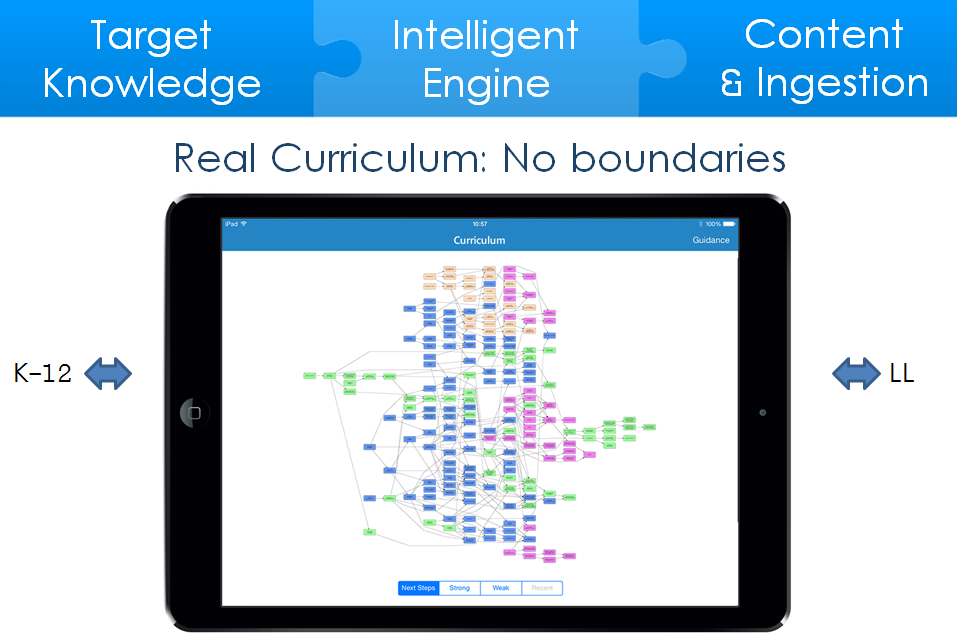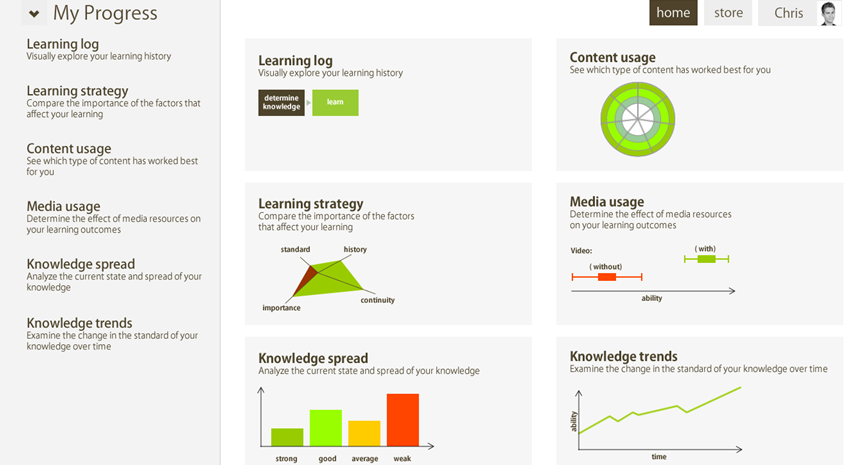Exclusive Interview with David Collery, CEO, CCKF (Realizeit)
Dr. Saba: How did you become interested in using technology for improving education and training?
Mr. Collery: A background in teaching in disadvantaged high schools in Dublin for 15 years from 1970, where I saw the low expectation of both the environment and the students, made me determined to set the same teaching and learning goals for these disadvantaged students that were set for those from better circumstances. Founding and running a successful software company from 1986 to 2006, brought the knowledge and experience of how complex computer systems work.
In his 1971 book “Deschooling Society”, Ivan Illich referred to the web of knowledge, envisioning a sharing of knowledge across a network of communication devices. Then that network was weak; now it’s efficient and growing stronger with the potential to reach everyone on the planet.
There is no number, no mark; there is only a continuously changing belief in the capacity of the individual.
So maybe we now have the opportunity to break the social and academic bounds that limit the learning opportunities and the capability of an individual? In 2007 I determined that if technology could enrich our lives in medicine, aviation, finance and communications what could its potential be in the delivery of education?
Dr. Saba: How did the idea of developing Realiseit come about? What prompted you to develop an advanced platform beyond what is available in learning management systems?
Mr. Collery: Why should a mark given in once-off tests define the potential of an individual? This mark, like social circumstance, is often carried by the individual like the mark of Cain, defining expectations and restricting access to further learning. Social circumstance and access to learning are linked together.
With an intelligently constructed system there is no mark, just a continuously changing belief in the capacity of the individual. And the system could be affordable and available to every individual. Virtual learning environments and learning management systems were never built for leading a learner on a boundless learning pathway, but are rather static content delivery and communication platforms which do not have any underlying intelligence to guide, engage or predict. They reflect the bounded delivery of learning that is tied to seat and time. They cannot provide the real-time continuous granular data needed to feed data and learning analytic needs. They are management systems, not learning systems.
CCKF began with a vision of a new generation of learning experience that would deliver truly personalised learning using a system that could adapt to the individual but also adapt and evolve itself as it was used.
Dr. Saba: What are some of the unique features of Realiseit?
Mr. Collery: CCKF began with a vision of a new generation of learning experience that would deliver truly personalised learning using a system that could adapt to the individual but also adapt and evolve itself as it was used. The system would be content agnostic and would consider the lifelong learner as its target user. Realiseit is the result of this vision. It is a platform that contains an intelligent learning engine that can take any target knowledge space, accompanied by any content and provide an adaptive learning experience for an individual. Realizeit presents a new generation of adaptive learning. The system is content agnostic and contains a unique engine that is powered by a number of mathematical models that improve and refine themselves. It provides a framework to integrate the learner and instructor into the learning experience combining the power of the adaptive engine with the expertise of the instructor. The system provides a new way to create and organise courses by introducing the concept of a learning map (network) and allowing content to be authored or ingested to enrich the map. Courses can be created from subsets of maps (crossing knowledge domains) and the system will automatically personalise these to match each learner’s standard of knowledge, ability level and learning styles/preferences. The system uses its own analytics to improve itself but also provides access to these for faculty, providing insights into the learning patterns and standard of knowledge of students These analytics also support the course development process by providing real feedback on weak areas of material, problem concepts, questions etc. Realiseit is the first system to integrate and all relevant user roles into a single unified platform: it provides rich and comprehensive experiences for curriculum designers, authors, students, instructors, course administrators and data scientists. The integration means that all elements feed each other and maximise their effectiveness.
Dr. Saba: How has Realiseit been received by institutions of higher education?
Mr. Collery: The system is now being seen as key to addressing the personalised learning agenda that is going to dominate the future delivery of higher education to a wider audience. Institutions across the spectrum of higher education, from tier one public universities to private universities, not-for-profit colleges and for profit institutions are using the system. We have the largest single installation of adaptive learning in the US at the schools and colleges of Career Education in Chicago with over 120,000 course takers across more than 30 domains. This implementation, going into its third year and growing rapidly is serving a mostly learning population in the 28-35 age group. That so many learners in these schools are using the system continuously on a daily basis is a clear testimony to the realization of our original vision and design. We have since expanded into large public institutions such as the University of Austin in Texas, the University of Central Florida, Baypath College in Massachusetts, and Western University in California. What’s interesting here is the range of institution types and the learning constituency they serve from 100 and 200 level courses, through undergraduate and graduate programs across domains from basic literacy and numeracy to MBA programs and complex medical school programs. We are introducing Realiseit to a new university on a monthly basis and are partnering with Cognizant Education to deliver across the US and globally over the next two years.
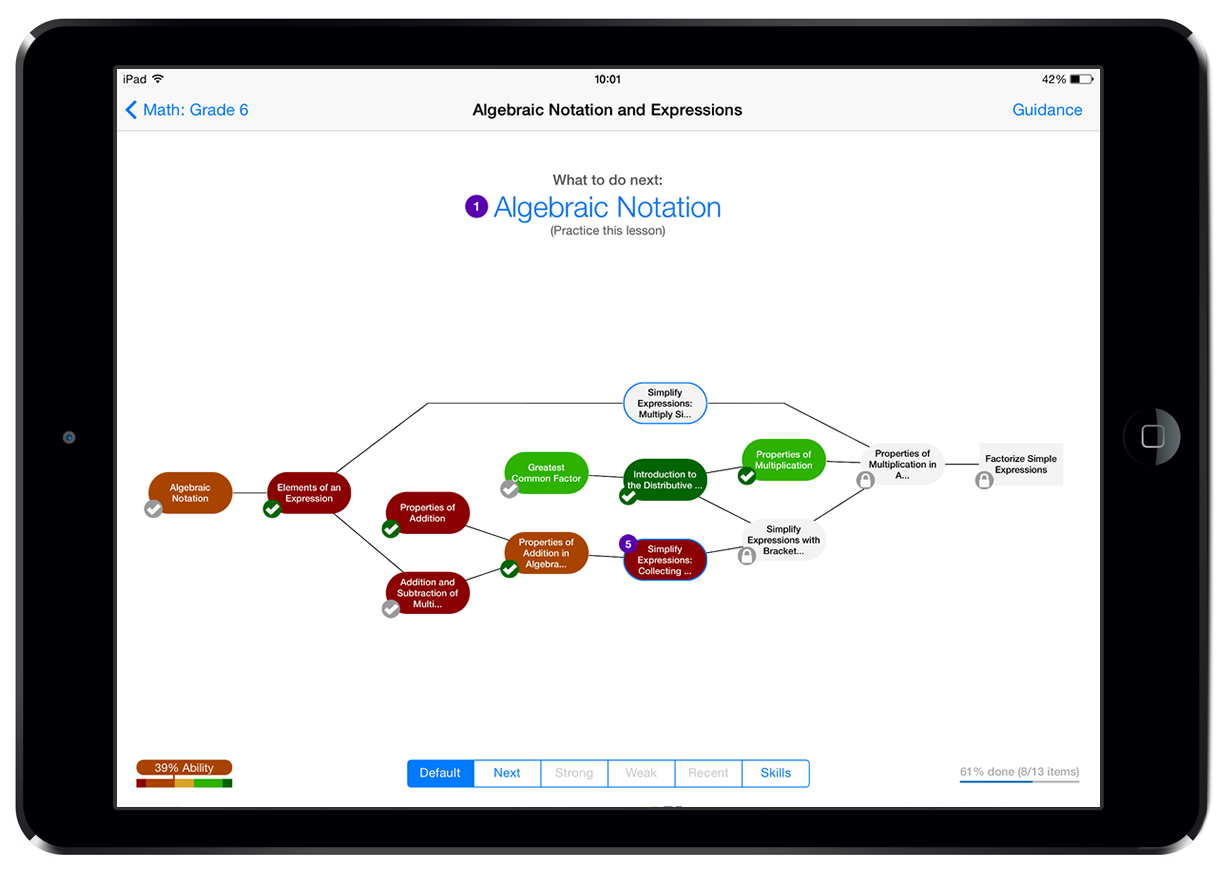 |
|---|
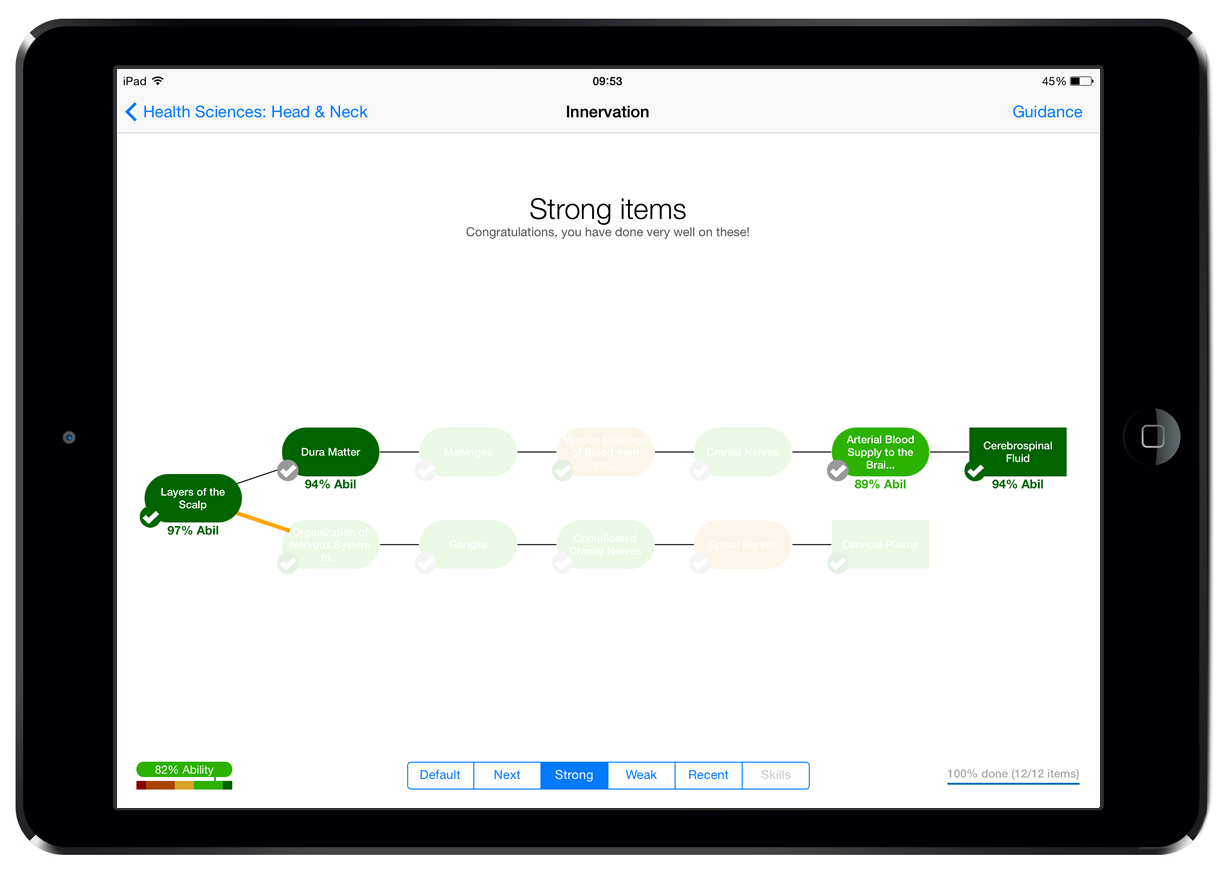 |
Dr. Saba: What challenges have you had in introducing the idea of an adaptive learning system to institutions of higher education that have a linear and lock-step model of instruction?
Mr. Collery: The biggest challenge facing any disruptive model is that of conviction and confidence. The acknowledgement of the necessity for a new model of personalized learning delivery and a recognition of the potential for such a system is there. So also is the reasonable fear for academic rigor. The main challenge is to show the university how its standards can be maintained while implementing a truly adaptive system. In our conversations with institutions we are able to show how Realiseit with its emphasis on the separation of curriculum and content can leave the academic in control of the curriculum and its objectives while providing a simple and elegant personal learning path for the student.
Dr. Saba: How have you been able to work with educational administrators who have to comply with linear and non-adaptive regulations?
The administrators are beginning to see the institutional benefits that can accrue from the continuous stream of data Realiseit produces.
Mr. Collery: The administrators are beginning to see the institutional benefits that can accrue from the continuous stream of data Realiseit produces. Placing it at the centre of a learning ecosystem, they see the potential for data and learning analytics. Watching how the platform has been embedded it has been interesting to observe how the capabilities of the platform, particularly the ability to create learning maps for any domain, the ability to use any legacy content and the comprehensive nature of the API have been used to gradually, yet quickly, ease the transition in a phased implementation. Alignment with traditional grading systems and integration with any legacy LMS has been achieved at a low cost due to the capabilities of the platform.
It should be remembered that adaptive is only a means to an end, not an end in and of itself. Traditional regulations are based around curriculum and outcomes. Realiseit more than fulfill these requirements but also enriches the gap in between, providing supporting evidence for outcomes that was not possible before. It provides an elegant framework that supports the traditional while providing the framework and support to make the journey to the new paradigm.
Dr. Saba: What is your vision for the future of Realiseit. What are some of your plans for its future development?
Mr. Collery: The university of the future will be at the core of a learning ecosystem, not only serving the traditional university under graduate and graduate but will reach back to the feeder population in the k-12 sector and also continue to serve the learner in his or her career. This will place Realiseit at the centre of a learning system, serving the life-long learning and data needs of a vast network of learners. Independent of content and changing technologies our core learning algorithms will grow stronger and ever more responsive as the data accumulates. Our future development plans are largely based around the proprietary research that we continuously conduct in-house which is informed by the data that we receive from our users and the changing requirements of the learner. We have built, and are continuing to build on the intellectual depth and rigor of our research base.
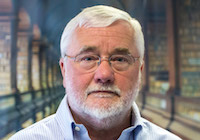 David Collery graduated from University College Dublin in 1971 with a BSc, and Higher Diploma in Education.
David Collery graduated from University College Dublin in 1971 with a BSc, and Higher Diploma in Education.
He spent 14 years teaching Mathematics in deprived inner city Dublin schools, and with a passionate belief in the natural ability and right of any student to learn, irrespective of background, led his students to attain the highest academic standards. In the mid seventies he was one of the first graduates of the then highly innovative Diploma in Computing in Education from Trinity College Dublin, and is a true pioneer of school-based computer learning courses.
He founded CCM Software in 1986 and led the company to develop and market a school & college administrative and scheduling system that is still used by all of the schools in Ireland, schools in the UK, as well as universities and colleges in the UK and Far East. He led the sale of CCM software to Serco Plc in 2002.
Returning to his roots in teaching and learning, he co-founded CCKF on the belief that intelligent, adaptive systems will provide the engine to power the delivery of truly individualised and personalised learning and has led its development to date. David provides the dynamism and imagination to envisage the new learning paradigm.
 An autodidact with a wide knowledge of literature and history, speaking a number of languages including Irish, French and some Italian, he is strongly of the view that learning is within reach of each individual and that “There is no number, no mark; there is only a continuously changing belief in the capacity of the individual”.
An autodidact with a wide knowledge of literature and history, speaking a number of languages including Irish, French and some Italian, he is strongly of the view that learning is within reach of each individual and that “There is no number, no mark; there is only a continuously changing belief in the capacity of the individual”.
